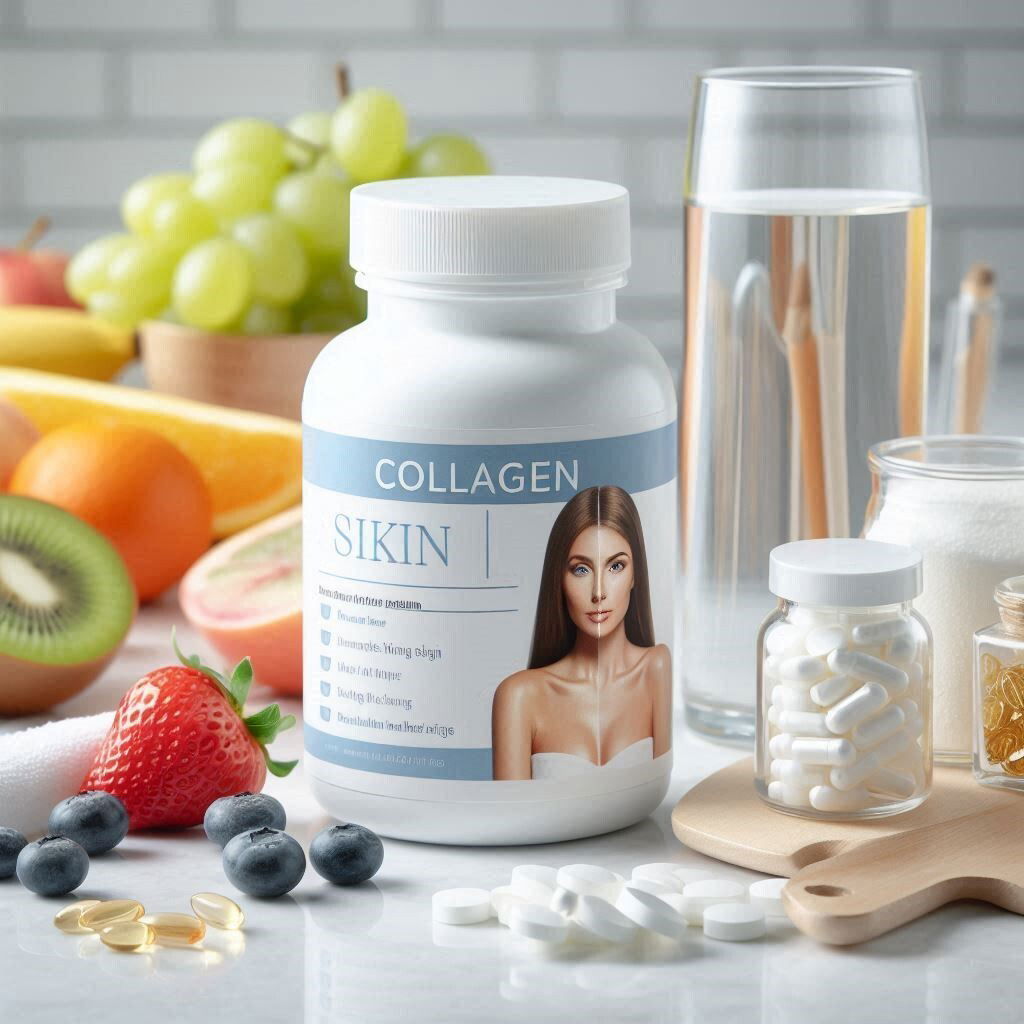Using Collagen for Menopause to Enhance Healthy Aging

Introduction
Menopause is a time in every woman’s life that comes with major changes to their bodies and emotional stability. One of the most visible problems that will affect women is what it does to their skin, hair, and joints lines. Women age, and their bodies’ collagen level production reduces. However, collagen is the most important protein that skins their and the human’s body. It facilitates skin resiliency, connective tissues, and bones integrity. This article presents what you need to know on collagen as a perfect fit for menopause to ensure healthy women aging in menopause.
What is Collagen?
This protein is essential, making the skin to be firm and is the final protein present within the skin and the structure of the skin. Collagen facilitates the skin mobility and skin grays resiliency. The protein keeps the skin hydrated keep its compact. Collagen is the only primary collagen protein available in the body
Chemical and Physical Characteristics
Collagen is grouped and characterized into fibrous protein and helix shaped that are grouped into complex structures. It also provides shapes within the body of animals
Purpose of Collagen in Human Body
Collagen is the primary protein in the human body and purposes include:
- Continuous skin growth and development
- It also purposes in post-injury skin repair procedures
- Helps in the skin to be both firm and moist.
Benefits of Using Collagen Supplements in menopause
Skin care
As the level of hormones drop, the skin becomes more fragile during menopause. Collagen is required to build and repair skin structures in the body. It helps in maintaining the natural elasticity of the skin and prevents the appearance of fine lines and wrinkles. Collagen improves the overall skin hydration and visibly improves skin health.
Hair and Nails
Hair and nails become thin and brittle as growth slows during this period. Collagen supplements are rich in proteins and amino acids, which are essential to promote hair and nail growth. It increases the thickness of hair and nails.
Bone Density
Collagen peptides and supplements are beneficial in stimulating the synthesis of bone minerals. It helps in stimulating the cells for bone formation. Collagen helps in inducing osteoblasts and potentially can also change the way our stem cells differentiate. It also helps in inhibiting the osteoclasts which promotes the resorption of bones.
General Joint Health and Mobility
During menopause, joint pain and stiffness are common complaints. Collagen supplements can improve joint mobility, as collagen keeps cartilage and joints in good health. Collagen will help reduce pain too. Additionally, it provides the body with the building blocks for cartilage restoration making them more mobile and reducing joint pains.
Muscle Mass
It has been noted that there is muscle mass loss during menopause. Collagen supplements also play a significant role in maintaining and increasing muscle mass. It will ensure that your body remains functional, allowing you to work out and take part in physical activities.
Sources of Collagen
There are a few options available, including powder in canisters, in capsules, or in liquid form. Hydrolyzed collagen is highly recommended as it is the type that is broken down into peptides that are easy to absorb. A good supplement will absorb different types of protein. There are numerous original supplements available, and some make excessive claims. Optionally, you may consume broth, chicken, and egg white. Any vitamin and mineral-rich diet can help with collagen production in our bodies.
Collagen-Inducing Nutrients
Some nutrients can enhance the collagen synthesis of the human body. The most common examples are:
- Vitamin C. It is found in citrus fruits, strawberries, and bell peppers, and it is a necessary nutrient for collagen synthesis.
- Zinc. It is present in meat and shellfish and in adequate quantities in most seeds.
- Copper. To a certain extent, it is essential in the formation of collagen fibers. It is mostly found in nuts, seeds, and organ meats.
Selecting the Right Collagen Supplement
Types of Collagens
Depending on the source and the processing method, different types of collagens may have varied effects. Type I and Type III collagen are beneficial for the skin as well as for the nails, and the hair. Conversely, Type II collagen is an ideal nutrient for the joints.
Source of Collagen Foods
Naturally, marine food is better, as it has higher absorption rates and is more environmentally sustainable.
Quality and Purity
Fewer additives and filler ingredients should be used in collagen supplements. Ideally, the ingested nutrient should be one hundred percent collagen, without any other artificial ingredients. Occasionally, third-party certifications are also provided.
Collagen Side Effects and Considerations
- Allergens. Typically, patients may have allergies to bovine or marine collagen, and consequently the label should always be checked for allergens.
- Digestive issues. Nausea, diarrhea or constipation symptoms are common side effects, although starting at a low dose can help to reduce the likelihood of these side effects.
- Medical side effects. If taking collagen supplements in conjunction with other therapies or medical issues, patients should inform their healthcare providers.
FAQs
Q1. Can I get enough collagen from my diet?
Although you already get some of the collagen from your daily foods, taking collagen supplements can help you to meet the sufficient and consistent levels. This is essential for keeping optimal collagen to counteract degenerative body changes that result from aging.
Q2. How long does it take to see results from collagen supplements?
The majority of people generally notice benefits in skin hydration, firmness, and wrinkle reduction in 4 – 8 weeks after combining collagen supplements in foods, snacks, and drinks.
Q3. Are there any side effects of taking collagen during menopause?
Some individuals may suffer mild side effects, such as digestive issues or allergic reactions. It is always advisable to start with a small dose, and if you are concerned, talk to your doctor before you begin using collagen naturally.
Q4. Is there any harm in taking collagen for long periods?
Collagen supplements are safe to use for long periods. However, always start with a small dose and combine an increased dose slowly to determine how the side effects affect you. If you wish to start or learn more about any collagen supplement, kindly consult your doctor.
Conclusion
The use of collagen during menopause is beneficial, and it helps women to undergo this aging process healthily. Dryness and increase of acne can be as a result of reduced collagen production, but if women consume healthy collagen, such as skin, hair, and cartilage collagen, these will be improved to ensure they look healthier and happier.
